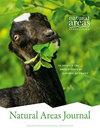Reducing the Risk of Sexual Misconduct during Field Research with Students
IF 0.8
4区 环境科学与生态学
Q4 ECOLOGY
引用次数: 0
Abstract
ABSTRACT Many research teams that work at remote field sites include undergraduate and graduate students. It is the responsibility of project directors to be informed about the frequency of sexual misconduct among research teams and to implement best practices and policies to reduce the risk of sexual misconduct. Students and other individuals from lower positions of power experience higher rates of sexual misconduct when participating in research at remote locations. Our research group hosted a two-day focus group with experienced researchers and administrators from academia, government agencies, and biological field stations to identify best practices and policies that reduce the risk of sexual misconduct for members of research teams working at remote locations. The participants identified 43 best practices and policies with 15 items rated as “essential,” 27 items rated as “very important,” and one item rated as “somewhat important.” The focus group participants identified codes of conduct as an essential tool for defining sexual misconduct, clearly stating behavioral expectations, establishing a review process for potential violations, and enforcing penalties for violators. The code of conduct must be shared with research team members prior to departure to the field site and be revisited multiple times throughout the research experience. All members of the research team must be able to trust that reports of sexual misconduct will be fairly evaluated by leadership and violations will result in consequences for the responsible individuals. Reducing the risk of sexual misconduct among remote research teams requires conscious effort and actions from administrators and research directors.减少与学生实地研究期间性行为不端的风险
摘要许多在偏远实地工作的研究团队包括本科生和研究生。项目负责人有责任了解研究团队中性行为不端的频率,并实施最佳实践和政策,以降低性行为不端风险。在偏远地区参与研究时,来自权力较低职位的学生和其他个人的性行为不端率较高。我们的研究小组举办了一个为期两天的焦点小组,由来自学术界、政府机构和生物实地站的经验丰富的研究人员和管理人员组成,以确定降低在偏远地区工作的研究团队成员性行为不端风险的最佳实践和政策。参与者确定了43个最佳实践和政策,其中15个项目被评为“基本”,27个项目被评定为“非常重要”,一个项目被评级为“有点重要”。焦点小组参与者将行为准则确定为定义性不端行为的重要工具,明确说明行为期望,建立潜在违规行为的审查程序,以及对违规者实施处罚。在前往现场之前,必须与研究团队成员共享行为准则,并在整个研究过程中多次重温。研究团队的所有成员都必须能够相信,领导层会公平评估性行为不端的报告,违规行为会给责任人带来后果。降低远程研究团队中性行为不端的风险需要管理人员和研究主管有意识地努力和采取行动。
本文章由计算机程序翻译,如有差异,请以英文原文为准。
求助全文
约1分钟内获得全文
求助全文
来源期刊

Natural Areas Journal
环境科学-林学
CiteScore
1.70
自引率
11.10%
发文量
50
审稿时长
>36 weeks
期刊介绍:
The Natural Areas Journal is the flagship publication of the Natural Areas Association is the leading voice in natural areas management and preservation.
The Journal features peer-reviewed original research articles on topics such as:
-Applied conservation biology-
Ecological restoration-
Natural areas management-
Ecological assessment and monitoring-
Invasive and exotic species management-
Habitat protection-
Fire ecology.
It also includes writing on conservation issues, forums, topic reviews, editorials, state and federal natural area activities and book reviews. In addition, we publish special issues on various topics.
 求助内容:
求助内容: 应助结果提醒方式:
应助结果提醒方式:


